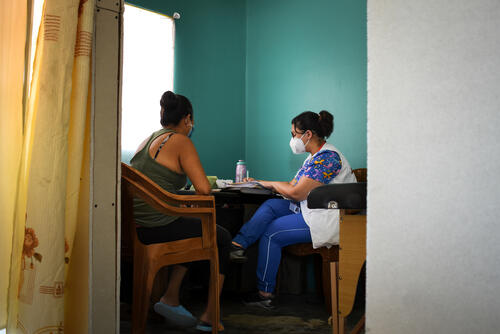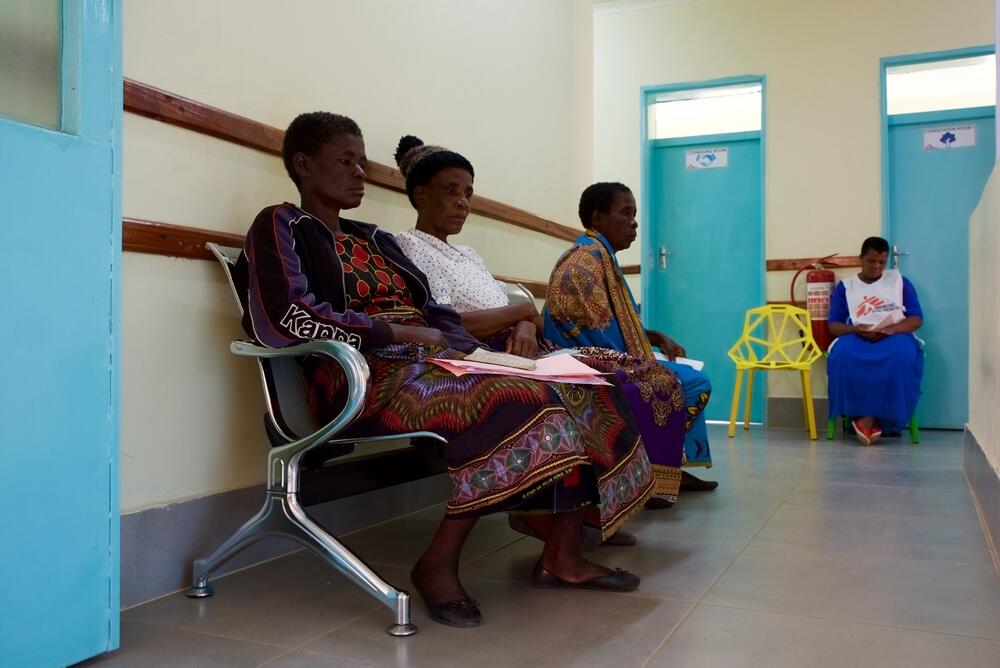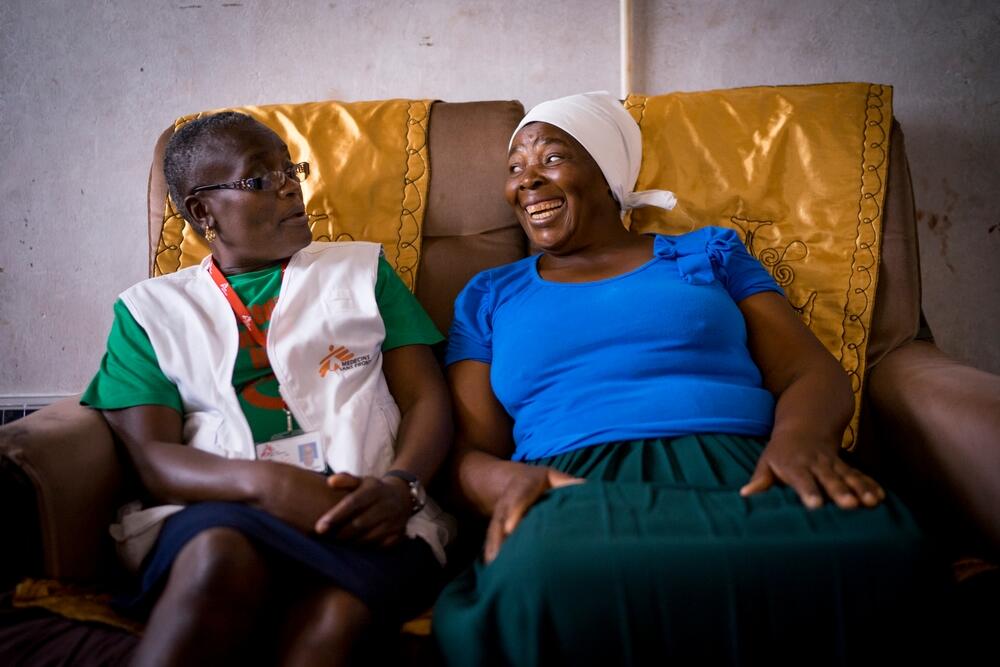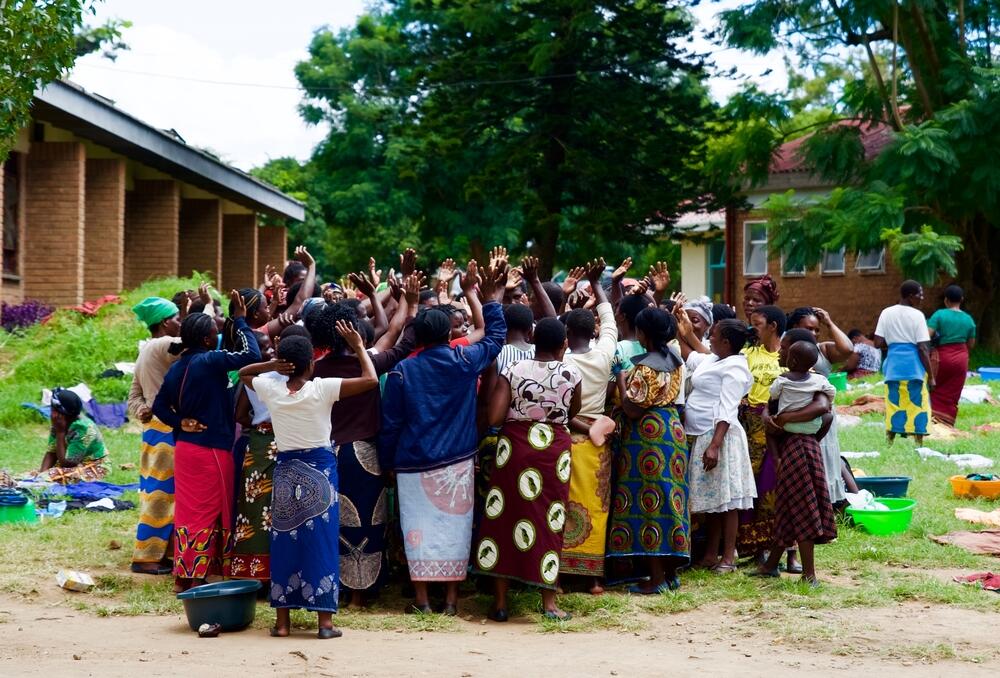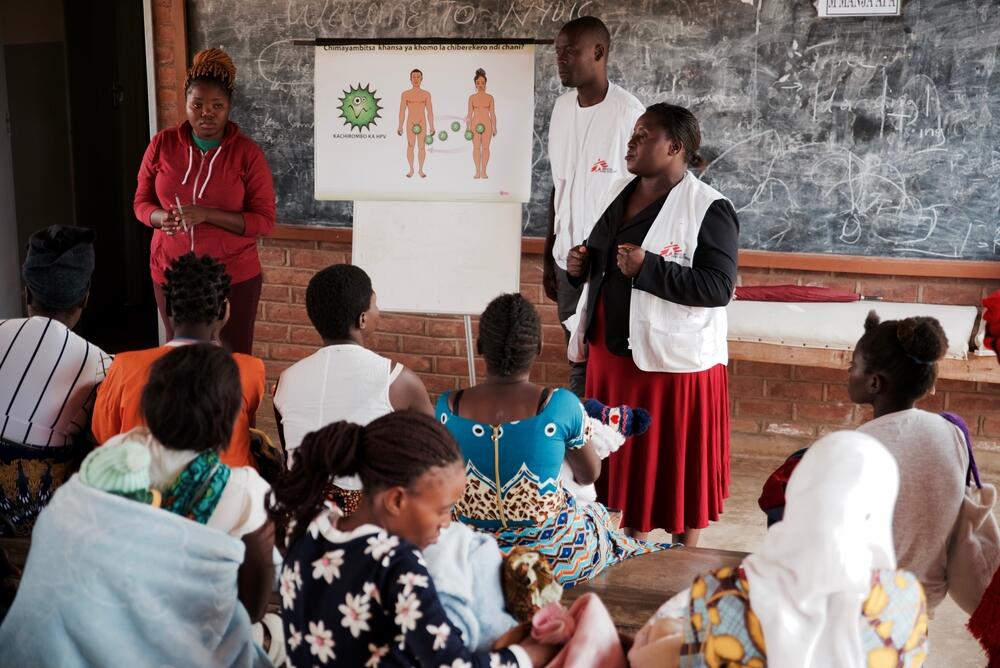Cervical Cancer
Cervical cancer kills hundreds of thousands of women each year, despite being preventable, detectable and curable.
This is partly because many women don’t have access to lifesaving screening and treatment.
In 2018, an estimated 311,000 women died of cervical cancer. More than 85 percent of those women lived in low- and middle-income countries. The inequality of this disease is stark.
In 42 countries around the world, it kills more women than any other cancer.
MSF has its most comprehensive cervical cancer programme in Malawi, which has the world's highest mortality rate of the disease. We also run cervical cancer projects in Zimbabwe, Mali and the Philippines, and recently handed over our activities in eSwatini to the local health authorities.
Cervical Cancer: Key facts
342,000
CERVICAL CANCER DEATHS WORLDWIDE IN 2020
90 %
OF CERVICAL CANCER DEATHS OCCUR IN LOW AND MIDDLE-INCOME COUNTRIES
8,500
GIRLS VACCINATED AGAINST HPV BY MSF TEAMS IN ZIMBABWE, JANUARY 2020
Guide to cervical cancer
Prevention of cervical cancer should start before girls are exposed to HPV. The World Health Organization recommends vaccinating against the virus between the ages of 9 and 14.
Since the first vaccine’s introduction in 2006, countries that have been able to introduce national vaccination programmes, have seen impressive results.
There are now confident predictions that cervical cancer will be eliminated in high-income countries in the near future. But that’s not the case in poorer countries, where HPV vaccines are less readily available.
Vaccination is an important part of our cervical cancer programmes around the world. In January 2020, MSF teams vaccinated more than 8,500 girls across 100 schools and 17 health centres in Chiradzulu district, Malawi.
Global vaccine shortage
There is currently a global shortage of HPV vaccines due to unprecedented demand. With pharmaceutical companies prioritising higher-paying customers, these lifesaving vaccines remain unaffordable and unavailable in many countries, forcing governments to leave millions of girls unprotected.
MSF’s vaccination efforts have also been limited by the shortage. We are calling on big pharma to increase production and drop the price of HPV vaccines so that every girl is protected.
Whilst an effective vaccine exists, many women grew up before it was introduced, and many young girls still don’t receive it. Cervical screening aims to detect precancerous changes, which, if not treated, may lead to cancer.
In poorer countries, “screen and treat” programmes make it possible for healthcare providers to identify, destroy or remove pre-cancer – all in one visit. The relatively simple infrastructure and equipment needed for screen and treat makes it a cost-effective strategy in places where sophisticated analytics are out of reach due to expense, distance, or the complex resources needed to support them.
Screening is where MSF has most significantly stepped in to halt the advance of pre-cancer. In 2018, our teams screened over 20,000 women in five countries.
Pre-cancer
In low-resource settings, such as the countries where MSF works, specially designed programmes allow women to be screened and treated during a single visit to their local health clinic. Using visual inspection with acetic acid, or VIA, nurses and midwives are trained to detect abnormalities or pre-cancer on the cervix with their naked eye or using a camera or smartphone (cervicography). They are then also equipped to treat what they find, within a defined extent. Using an electrical probe, they can freeze (cryotherapy) or heat (thermal ablation) the lesions to destroy them.
The whole consultation, with counselling throughout, can be completed in 30 minutes. Pre-cancer that cannot be treated on the spot is referred for LEEP, or loop electrical excision procedure. If cancer is suspected, MSF can also make arrangements for a biopsy.
To help build capacity and raise awareness, MSF conducts community engagement activities, mentors nurses and provides quality assurance through peer review and expert support. In Gutu district, Zimbabwe, screen and treat take-up has now reached 75 percent of the catchment population.
Established cancer
A complex and invasive cancer, cervical cancer is only able to be treated by surgery in its early stages. The operation, an extended abdominal hysterectomy, and the ensuing hospital stay can be daunting for the woman and her family in many ways.
In high-resource settings, teams made up of different specialists treat cervical cancer and tailor treatment programmes to the individual woman, which may include surgery, radiotherapy and/or chemotherapy. In low-resource settings, women’s options are much more limited. Surgery is a high-level skill often missing and chemotherapy and radiotherapy can be even rarer.
To offer the full spectrum of prevention and treatment in its Malawi programme, MSF opened an operating theatre and inpatient ward in the capital, Blantyre, in December 2019. Meanwhile, in Zimbabwe and Mali, we directly support women in their referral to an identified specialised hospital that can provide this lifesaving option.
Spotlight: The Philippines
Cervical cancer: News and stories
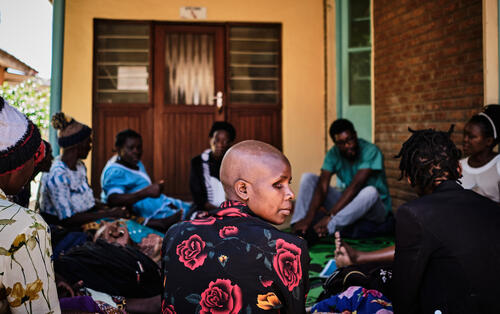
Malawi: Managing cervical cancer in a country with limited treatment options
